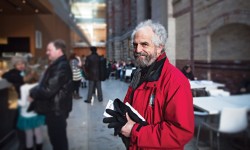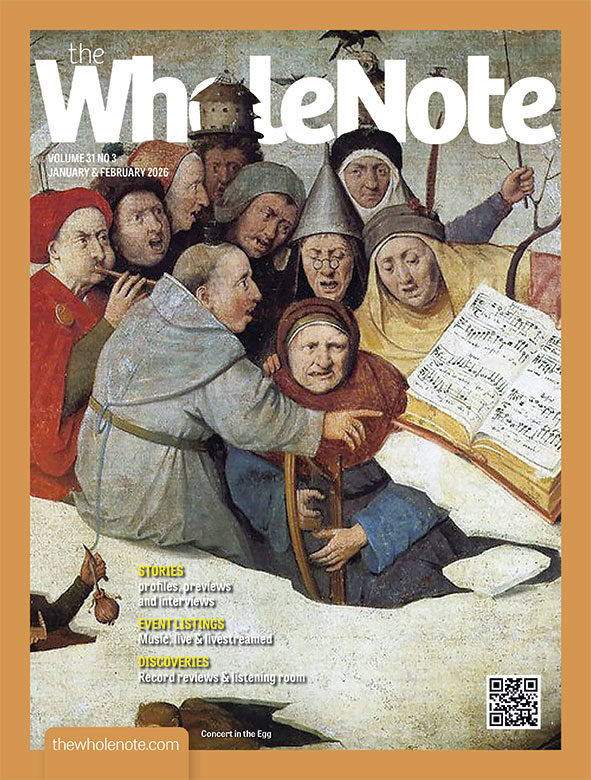Juno Who; Juno Where
ONE OF MY PERSONAL favourite Juno moments of all time was, I think, in Vancouver, 2009, when four or five Barenaked Ladies vaulted onto the stage to pick up their award. It was one of those typical Juno ceremonies – more poppy moments than Remembrance Day and, like the Oscars, just enough fashion runway moments to keep me watching while I grumbled and waited for speeches I could sneer at).
And then something very unexpected happened. One of the BNL’s leaned forward into the microphone, Juno hoisted high, and said that this moment was one they wanted to share with… wait for it… their public school music teacher, because that was where they acquired the musical habit.
Fast forward to February this year, and I found myself sitting in the Harbord Collegiate Institute auditorium in downtown Toronto listening to a “Sizzling Strings”school concert, all of it ok, most of it way better than that. And with… wait for it again… one of those same Barenaked Ladies, bass player Jim Creeggan, sitting in. Not showboating, just sitting in, sawing away at his standup bass. Just there. Making the same point I heard (or thought I did) from that Vancouver Juno stage: hey kids, this is where it all starts – learning what it feels like to make live music together.
So you won’t catch me grumbling about the Junos even though much of the music I would normally listen to with any kind of serious intent will not make it into the televised evening’s spotlight; and even though the awards in the classical genre, the most in any category, will not make it onto my tv screen (and jazz, our other obsession will get nearly as short shrift.)
This year, you see, March 22, CARAS and Roy Thomson Hall have had the brilliant idea of presenting OVATION, a Juno-related event celebrating Canadian classical music.
It will be hosted by Peter Oundjian who is music director of the TSO (as you probably knew), and now also of the Scottish National Orchestra (as you probably didn’t). Congratulations Peter.
The concert will feature no fewer than eight of this year’s Juno nominees: Gryphon Trio, Amici Ensemble, Winona Zelenka, Anton Kuerti, Lara St. John, Angèle Dubeau/La Pietà, Duo Concertante (performing an R. Murray Schafer work nominated for Classical Composition of the Year) and Measha Brueggergosman. Tafelmusik which, while not nominated this year has been nominated 37 times in the past, is the icing on the cake.
These and other nominees will also be in action throughout the month, all over The WholeNote map: cellist Winona Zelenka, March 11 at St. John’s United Church in Oakville; Amici in their own concert at the Glenn Gould Studio April 3; and pianist Janina Fialkowska no fewer than three times: with the Hamilton Phil on the 5th; solo in Newmarket on the 13th, and solo in Waterloo on
the 15th.
On the jazz front, you can catch vocalist KellyLee Evans’ at The Old Mill’s Dining Room on March 14, and fellow vocal jazz album nominee Laila Biali, at Hugh’s Room on March 25, while no fewer than three instrumental jazz nominees will be at the Gladstone Hotel March 26 as part of JunoFest: Toronto’s Adrean Farrugia and Montreal’s Chet Doxas (best contemporary jazz album) and Swiss-born Montrealer Félix Stüssi (traditional jazz album).
Competing in the same category as Stüssi, and completing our roundup, John MacLeod’s Rex Hotel Orchestra, a 20-piece ensemble formed in 2003, will be, where else, at the Rex on March 28 as part of their “last Monday of the month” residency there.
Bet they all have some public school teacher or other to thank. ν
—David Perlman, publisher@thewholenote.com




